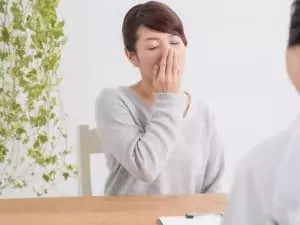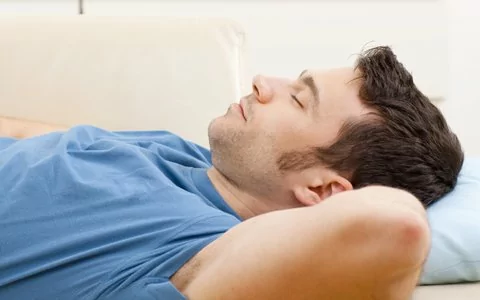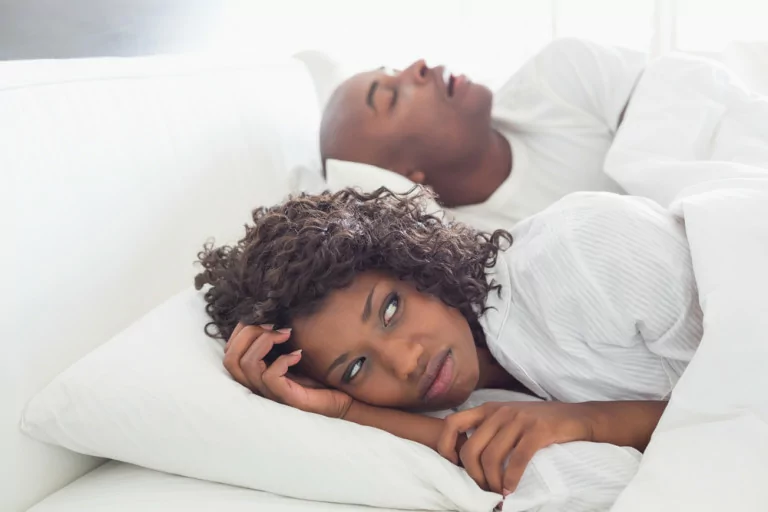For patients who have obstructive sleep apnea (OSA), the condition is more than just a sleep disorder. It can also be a significant factor in your risks of other chronic health conditions, including cardiovascular disease and mental health concerns. While it can seem like it strikes randomly, there are actually several factors that contribute to…
Sleep Apnea
Things Sleep Apnea Increases Your Risks Of

Obstructive sleep apnea (OSA) is a common, but often undetected, sleep breathing disorder that can have a number of effects on your daily life. When you have OSA, oral and throat tissues continuously block your airway as you sleep, causing you to repeatedly stop breathing throughout the night. After a moment, your brain and body…
Do You Feel More Tired Every Day?

In today’s hectic society, feeling tired isn’t exactly out of the ordinary. However, if you make healthy choices and get plenty of rest, it shouldn’t be something that you experience regularly. Tiredness, exhaustion, an inability to stay focused, and other related symptoms are often signs of obstructive sleep apnea—a sleep disorder that can deprive you…
Are These Symptoms Trying to Warn You of Sleep Apnea?

Treating sleep apnea can be tricky sometimes, mainly because patients are often unaware that they have it, and therefore, never seek treatment for it. The main characteristic of obstructive sleep apnea is chronic, unusually loud snoring. The noise may be obvious, but snoring isn’t always obviously connected to sleep apnea. However, there are also other…
Different Ways to Treat Obstructive Sleep Apnea

Because loud, obtrusive snoring is the characteristic symptom of obstructive sleep apnea (OSA), many patients only notice the snoring and not the underlying condition that it indicates. This can make detecting sleep apnea particularly difficult; people don’t always seek help for snoring, and therefore, they never realize that they have sleep apnea. Once it is…
A Few Tips to Stop Snoring

If you snore consistently, then those around you may consider it fairly annoying, depending on how loud it is. Besides that, though, many people don’t consider snoring a health condition as much as a personality trait. For many patients, chronic snoring can overtax their cardiovascular systems, making it harder for their bodies to receive oxygen…
A Good Reason to Worry About Sleep Apnea

The detrimental effects of sleep deprivation have been studiously researched and well documented. What many people do not know, however, is that you can be deprived of restful sleep without knowing. Sleep apnea is a condition that allows you to fall asleep, but prevents your mind and body from achieving REM sleep—the deep sleep that…
Pop Quiz: Are You Sleep Deprived?

If you don’t recall staying up late unable to fall asleep, or waking up constantly in the middle of the night, then sleep deprivation may not seem like something you should worry about. Nevertheless, millions of people in America lose precious sleep to disorders like obstructive sleep apnea without realizing it until they’re diagnosed. Because…
Diagnosing Your Sleep Apnea

Patients with obstructive sleep apnea (OSA) don’t always require a complicated machine to address their condition. In fact, not all patients with sleep apnea snore, either. The term “apnea” is a Greek expression that means without breath, or to stop breathing. With sleep apnea, there are different ways for you to stop breathing in your…
Trouble Sleeping? Try These Tips Before Trying Sleep Aids

Approximately one-third of all Americans complain of insomnia and other sleep problems. In response, many people turn to sleeping aids in their quests to find rest. While medications can help you temporarily sleep better, relying on them can prove detrimental to your sleep cycle. To help you avoid exacerbating your sleep troubles, we explain what…

